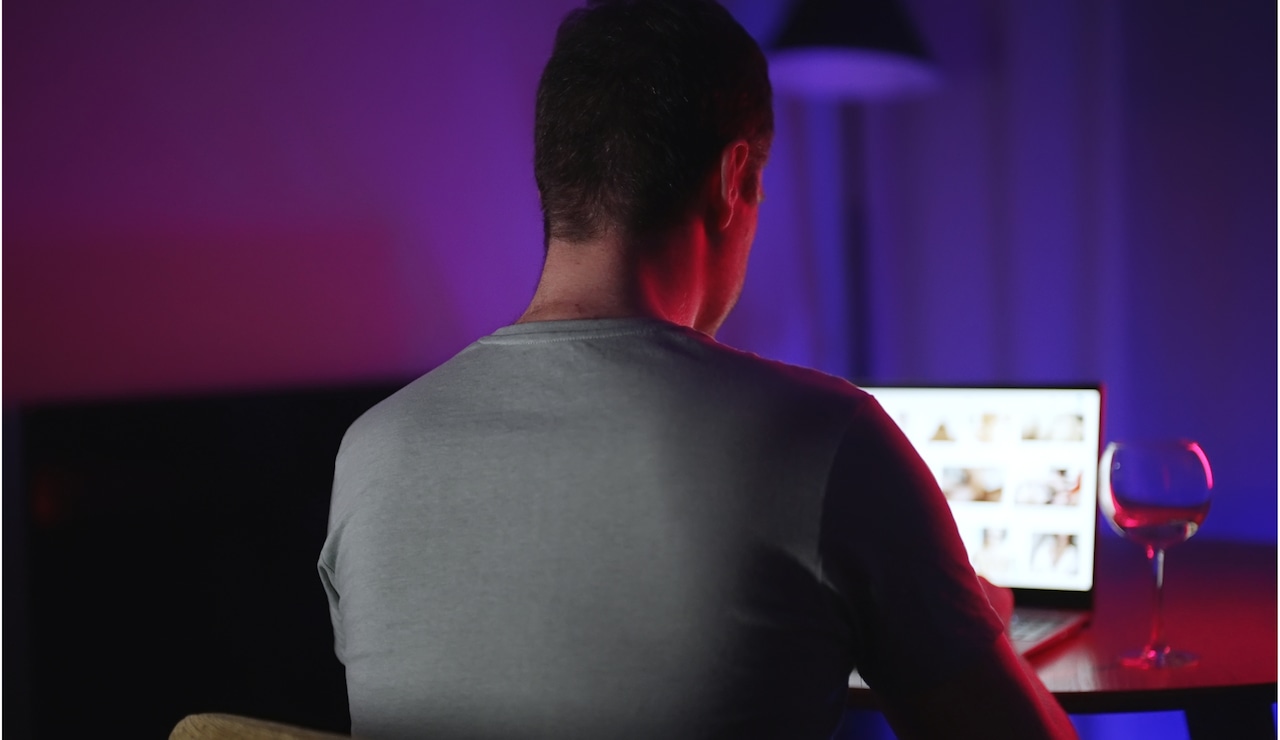There is a new tax in Alabama that applies to pornographic websites and is intended to offset some of the harm the bill’s sponsor said is caused by children’s exposure to porn.
Alabama lawmakers passed the tax as part of a new law that requires adult websites to verify that users are at least 18 – the Materials Harmful to Minors Act.
Rep. Ben Robbins, R-Sylacauga, the sponsor of the bill, which passed almost unanimously last year, said the state and nation face a crisis because there are so many ways that children are exposed to porn.
“It affects the development of a child when they are exposed and repeatedly exposed to violent and gratuitous pornography,” Robbins said.
“Males become more violent as they become adults, and females have higher rates of anxiety and depression.
“And it causes the breakdown of relationships because it distorts the way in which people, children, when they become adults, it distorts their view of healthy and happy relationships.”
Alabama’s age verification requirement for porn sites took effect last year.
The law also requires the websites to post several specific warnings about the harms caused by exposure and addiction to porn.
The new tax took effect September 1 of this year.
Companies will pay 10% of gross receipts for sales, memberships, subscriptions, performances, and other activities based in the state.
In July, the Alabama Department of Revenue posted a notice telling companies how to register to pay the tax.
Frank Miles, spokesman for the Department of Revenue, said he could not disclose the names of companies that have registered or say how many companies have registered because of confidentiality requirements.
Miles said the first payments are due on October 20.
Money raised by the tax will go to the Alabama Department of Mental Health for the care and treatment of people with behavioral health needs, including prevention, treatment, and recovery services and supports.
Robbins said the need to expand mental health care is one of the most consistent messages he hears as a state lawmaker.
“I hear repeatedly that we need to fund mental health, and we have mental health issues,” Robbins said. “And I think the pornography is a driver in causing mental health issues.
“And so to offset the damage caused by these companies, they need to pay basically a sin tax to the state, which then we use to help support our mental health services.”
Alabama’s age verification requirement is similar to laws passed in many states.
Representatives of the porn industry sued to challenge the age verification law in Texas, claiming that it violated the First Amendment because it hindered the rights of adults.
In June, the U.S. Supreme Court upheld the Texas law in a 6-3 decision.
Robbins noted the comments of Justice Amy Coney Barrett, who has seven children and spoke during oral arguments over the Texas law about the difficulty of protecting children from porn.
“She said it’s an impossibility for adults to completely safeguard children from this content because there’s so many avenues to access the Internet and this is so pervasive that even the most diligent and astute parent cannot prevent their child from accessing this,” Robbins said.
“So I think parents are trying, but they’re against immeasurable odds.”
When the age verification requirement took effect last year, Pornhub, one of the most popular adult websites, blocked access to Alabama users rather than follow the new law.
Read more: Pornhub blocks access in Alabama over state law requiring age verification, citing privacy concerns
In a statement to AL.com last year, Aylo, Pornhub’s parent company, said it supported the effort to protect children from pornography but said the best way to do that is with filters that are available on devices.
Barrett, who supported the decision to uphold the Texas age verification law, said content filters are not enough.
“Kids can get online porn through gaming systems, tablets, phones and computers,” Barrett said. “I can say from personal experience … content filtering isn’t working.”
Robbins said a few other adult websites have blocked access for Alabama users, like Pornhub.
Alabama lawmakers passed a bill in April requiring that smart phones and tablets activated in Alabama must have a filter that can block obscene content.
The device setup process must include the user’s age, and the filters must be automatically activated if the user is a minor.
The law took effect Oct. 1 and applies to devices manufactured after June 1, 2025.
Robbins said he thinks that will help.
“As I said earlier, parents are against immeasurable odds,” Robbins said. “It’s a David versus Goliath fight. So any tools that we, as parents, you know, can have, that’s going to be of a benefit to all parents of Alabama.”
Robbins said he plans to bring more legislation next year addressing technology and algorithms that drive addictive behavior on devices and expects other lawmakers to have bills.
“There’s going to be a lot of attention on how are we protecting children in this rapidly evolving world,” Robbins said.
“We’ve made a stab with pornography, but I think there’s more that needs to be done.”
If you purchase a product or register for an account through a link on our site, we may receive compensation. By using this site, you consent to our User Agreement and agree that your clicks, interactions, and personal information may be collected, recorded, and/or stored by us and social media and other third-party partners in accordance with our Privacy Policy.
